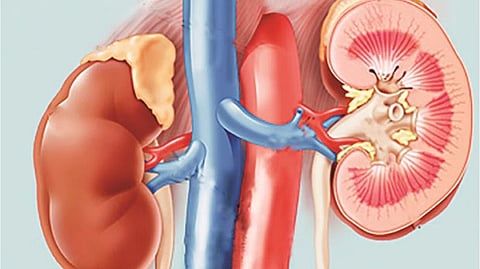

CHENNAI: Chronic Kidney Disease (CKD) is a serious health condition that affects millions of people worldwide. It is a progressive disease that gradually impairs kidney function over time, ultimately leading to kidney failure if left untreated.
There are many causes of CKD, but diabetes is the leading cause of CKD accounting for 40-50 percent of patients, and together with hypertension (high blood pressure) contributes to CKD in 60-70 percent. Other causes include glomerulonephritis, a group of diseases that damage the kidney’s filtering units, and polycystic kidney disease.
CKD is classified into five stages, with Stage 1 being the mildest and stage 5 being the most severe. In the early stages, the kidneys may still be functioning normally, but as the disease progresses, the kidneys become less efficient. In the early stages, CKD patients may not have any noticeable symptoms. Because of this many times, it is diagnosed at an advanced stage.
However, as the disease progresses, some common symptoms may include shortness of breath, swelling of feet and/or face, fatigue, reduced appetite, decreased urine output, and high blood pressure. In later stages, symptoms become more severe and may include nausea, vomiting, and itchy skin.
Certain factors can increase a person’s risk of developing CKD, including age, family history, high blood pressure, diabetes, and smoking.
In the early stages, lifestyle changes such as following a kidney-friendly diet, getting regular exercise, and managing blood pressure and blood sugar levels can help slow the progression of the disease.
Dialysis and kidney transplant may also be necessary for patients with end-stage renal disease. Early detection and intervention can help slow the progression of the disease and improve outcomes for patients.
Visit news.dtnext.in to explore our interactive epaper!
Download the DT Next app for more exciting features!
Click here for iOS
Click here for Android